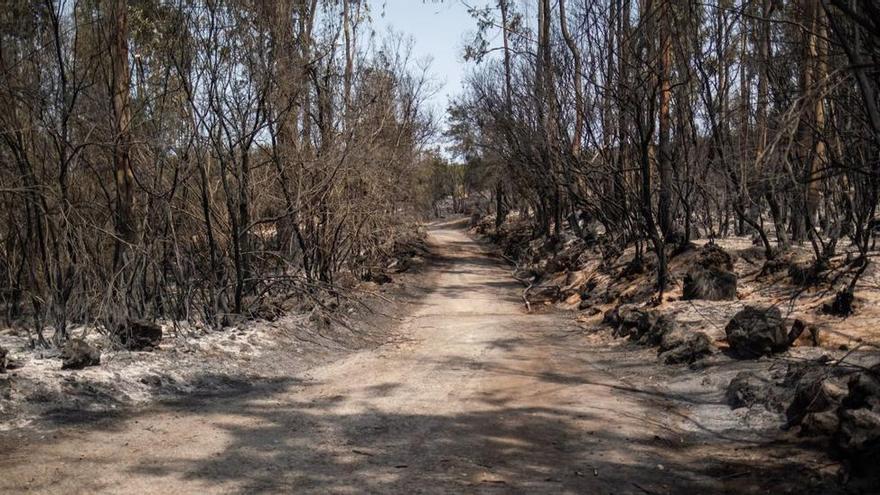
Beekeeping will enter the aid of the Government for the first time in 2024. Specific Supply Regime (REA) equating itself with the rest of the livestock sector of the Islands. The serious Tenerife forest fire Not only has it caused an environmental disaster on the island, but it has also directly impacted beekeeping production since some 2,500 hives have been burned and up to 6,000 are affected by the loss of forest mass and flowers on which the bees feed. . For this reason the Department of Agriculture proposes to the central government and the European Comission that starting in February, the complementary feeding given to the bees will receive aid at the same level as the feed and inputs for the rest of the livestock herd.
However, this new scenario has raised the suspicions of beekeepers of Gran Canaria and other islands that, beyond the situation caused by the fire, consider that the import of artificial food for bees is being encouraged, since in Tenerife foreign bees are brought that are not adapted to the climate of the Islands while in Gran Canaria has opted to promote the Canarian black bee, which does not need as much artificial feed as the imported ones.
Antonio Quesada, member of the board of the Gran Canaria Beekeepers Association (ApiGranca)emphasizes that artificial feeding – he believes the use of the term feed is incorrect – is not so necessary when raising the Canarian black bee, a native species and the only one that is in La Palma, Fuerteventura, Lanzarote and Gran Canaria, on the latter island since 2014, so it is prohibited to import bees from other areas, something that is allowed in Tenerife, La Gomera and El Hierro. “Foreign species are not accustomed to the environment of the Islands, so they must be given large amounts of sugary and protein food, which is increasingly expensive,” adds Quesada.
Gran Canaria beekeepers understand that Tenerife beekeepers who have been directly affected by the forest fire, which has not yet been completely quelled, are encouraged with specific aid. However, they also remember that this is the first time that the Autonomous Community has established direct aid to the sector as a result of a natural disaster since this did not happen either in the forest fires of Gran Canaria and La Palma in 2019 or in the volcanic eruption. of the beautiful island. Likewise, Quesada warns that, although the REA is regional aid, it will mainly benefit the island of Tenerife since in the rest of the islands not enough volume of artificial feeding is purchased to be able to request compensation for the cost of transportation offered by the European financing, aimed at lowering the price of the shopping basket on the Islands.
For its part, the president of the Tenerife Beekeepers Association (Apiten), Pablo Pestano, assures that beekeeping feed is “essential” to continue with beekeeping activity since drought and climate change are causing environmental and seasonal changes that have a direct impact on bee colonies. “The forest fire has accelerated the demand for aid so that the sector does not disappear, but the problem already comes before and affects all the islands and not just Tenerife,” warns Pestano.
Tenerife beekeepers defend the introduction of foreign bees because they are more “productive” since the Canarian black bee is not yet sufficiently developed. “The black bee is still a diamond in the rough that must be polished, we must have bees that are productive, docile, resistant to diseases and that adapt to climate change,” defends Pestano who, however, believes that it is developing a selection process that will enhance the native breed.
Need for more funds
Subsidies
Budget item
- The Minister of Agriculture, Narvay Quintero, recently said in Parliament that, in addition to including the beekeeping sector in the REA aid, the 2024 regional budgets will also have a finalist item destined for the sector. The Cabildo of Tenerife has also enabled aid for the purchase of food for the bees, something that the Cabildo of Gran Canaria also did after the 2019 fire.
Colonies
32,000 hives
- In the Canary Islands there are between 32,000 and 35,000 hives. Fires directly affect beekeeping since they not only destroy hives, but also burn the flowers on which the bees feed.
No foreigners
Ban since 2001
- In La Palma, Fuerteventura and Lanzarote it has been prohibited to bring foreign bees since 2001, while in Gran Canaria this prohibition has been in force since 2014.
















